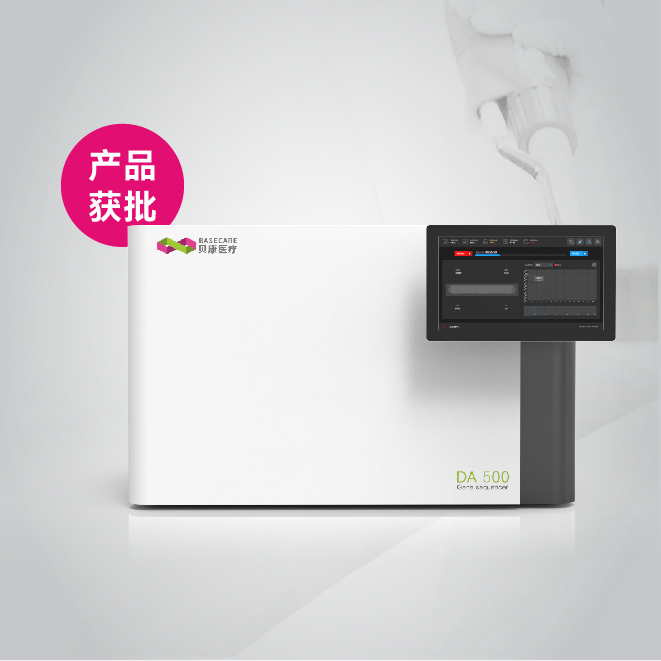从细胞中分离RNA的纯度于完整性对于许多分子生物学实验至关重要。如Northern印迹与杂交分析、寡聚(dT)纤维素选择分离 mRNA,cDNA合成及体外翻译等实验的成败,在很大程度上决定于RNA的质量。
RNA分离的最关键因素是尽量减少RNA酶的污染。
快速一步法提取总RNA
组织及有核细胞在匀浆过程中被变性液破膜、溶解,变性剂抑制RNA酶的活性,并使蛋白质变性及与核酸分离。经酸酚/氯仿将RNA抽提至水相,与DNA和蛋白质分离,再经异丙醇沉淀回收总RNA。
【试剂】
1×CSB缓冲液: 柠檬酸三钠 25mmol/L pH7.0
十二烷基肌苷酸钠 0.5%
b- 巯基乙醇 0.1mol/L
配制100ml 5×CS缓冲液:柠檬酸三钠3.6762,十二烷基肌苷酸钠 2.5g溶于100ml 0.05%DEPC水中,过滤,15lb/in2, 20min,去DEPC,4°C保存。
用前100ml工作液加 b-巯基乙醇700ml。
4mol/L异硫氰酸胍变性缓冲液:
47.26g异硫氰酸胍加至100ml CSB缓冲液中。
配制:23.63g异硫氰酸胍加热65°C溶于20ml无RNase水中,加10 ml 5×CS,加350ml b-巯基乙醇,用无RNase的水定量至 50ml。(约加25ml水)
2mol/L 乙酸钠NaAc(pH4.0):
16.4g乙酸钠加至0.05%DEPC水40ml,用冰乙酸调pH至4.0,定容至100ml,分装,高压20min去除DEPC。
3mol/L 乙酸钠NaAc (pH5.2):
24.6g 乙酸钠加至0.05%DEPC水80ml,用冰乙酸调pH至5.2,定容至100ml,分装,高压20分钟去除DEPC。
水饱和酚(酸酚,pH4.0):
取重蒸酚200ml,于65°C水浴溶解,加100ml无RNase水混匀,静置,取上层水相(大部分),加 0.2g 8-巯基喹啉,混匀,保存于棕色广口瓶,4°C待用。
【操作方法】
1. 组织匀浆:新鲜的或液氮冻存的组织,称重后,按100mg组织/ml变性液,匀浆。置冰上30min。
培养细胞:贴壁细胞用PBS洗2次后,直接加2ml变性缓冲液/瓶;悬浮细胞用PBS洗沉淀2次,按107细胞/ml变性缓冲液,置冰上30min。
2. 取0.5ml粘稠液体加入1.5ml Eppendorf 管(10ml塑料离心管)中,加50ml (1/10体积)2 mol/L NaAc(pH4.0),混匀。
3. 加0.5ml(等体积)酚和100ml (1/10体积的)氯仿:异戊醇(49:1),振荡混匀,冰浴10min。
4. 4°C,12000g,20min。
5. 吸上层水相入新管,加等体积异丙醇,-20°C,至少1hr。
6. 4°C,12000g,20min。
7. 弃上清,沉淀用 1ml预冷的70%乙醇漂洗,并移入Eppendorf管。
8. 4°C,12000g,10min。
9. 弃上清,室温干燥蒸发残存乙醇,数分钟。
10.加100ml 水溶解RNA,测含量。
11.加1/10体积3mol乙酸钠(pH5.2)和2.5倍体积预冷的无水乙醇置-30℃30min。
12.离心,12000g,15min.
13.弃上清,加预冷的70%乙醇 1ml,12000g,离心5min。弃上清,室温放置数分钟。
溶解RNA:每20mg RNA加4.5ml水溶解RNA,4℃存放待转膜(不宜久放)。
Total RNA Isolation
Guanidine-based isolation
Objective:
To obtain total RNA from zebrafish embryos.
Required Materials
Denaturing Solution or Solution "D"
2 M NaOAC pH 4
Phenol, H2O saturated
49:1 Chloroform/Isoamyl alcohol
Isoproponal
75% EtOH
DEPC-treated H2O or freshly deionized formamide
1 mL syringe
20 gauge needle
1.5mL microcentrifuge tubes
microcentrifuge
Procedures
Start=< Collected zebrafish embryos of desired developmental stage, etc.
Remove excess H2O from embryos.
Using a 1mL syringe with a 20 gauge needle, add the appropriate amount (consult Table 1) of solution "D" to the embryos.
Homogenize the embryos by passage through the syringe needle (5-8) times. To decrease the volume of frothy homogenate and check the status of the embryos, briefly pulse in a microcentrifuge at low speed. If there is a pellet of embryonic tissue, continue to homogenate with the syringe needle. If not, continue with the extraction.
The homogenates can be safely stored at -80°C.
Add 2M NaOAc pH4 (consult Table 1), and mix by inversion.
Add phenol and chloroform:isoamyl alcohol, vortex, and incubate on ice for 5-10'.
Centrifuge at 14,000 rpm for 2-3' at 4°C, and transfer upper aqueous phase to a new microcentrifuge tube.
Add 100% Isopropanol to precipitate RNA. Incubate samples at -20°C for at least 30'.
Centrifuge at 14,000 rpm for 10' at 4°C, and discard supernatant in waste container.
Dissolve the RNA pellet in solution "D", and transfer 10μL to a new microcentrifuge tube.
Precipitate RNA by adding equal volumes of 100% isopropanol. Incubate samples at -20°C for at least 30'.
Centrifuge at 14,000 rpm for 10' at 4°C, and discard supernatant in waste container.
Wash pellet by adding 75% EtOH.
If RNA is to be stored, leave majority of RNA precipitated in the 75% EtOH at -80°C. Continue with the 10μL aliquot to determine approximate concentration and integrity of rRNA bands.
Centrifuge at 14,000 rpm for 10' at 4°C, and discard supernatant in waste container.
Pulse the pellet to collect remaining supernatant with a pipet tip. Allow the pellet to air dry or use a vacuum.
Resuspend in DEPC-treated H2O or formamide.
Suspension in formamide protects the RNA from degradation by RNases, but for most applications the RNA should be precipitated from the formamide by adding 4 volumes of 100% EtOH and centrifuging at 14,000 rpm for 10' at 4°C.,
Quantitate RNA by diluting 1 μL into 100μL with alkaline H2O (see below). Then determine the A260 and A280.
Water used for spectrophotometric measurement of RNA should have a pH of < 7.5. Acidic pH affects the UV absorption spectrum of RNA and significantly decreases the A260/A280. Adjust water to a slightly alkaline pH by adding concentrated Na2HPO4 solution to a final concentration of 1mM.







